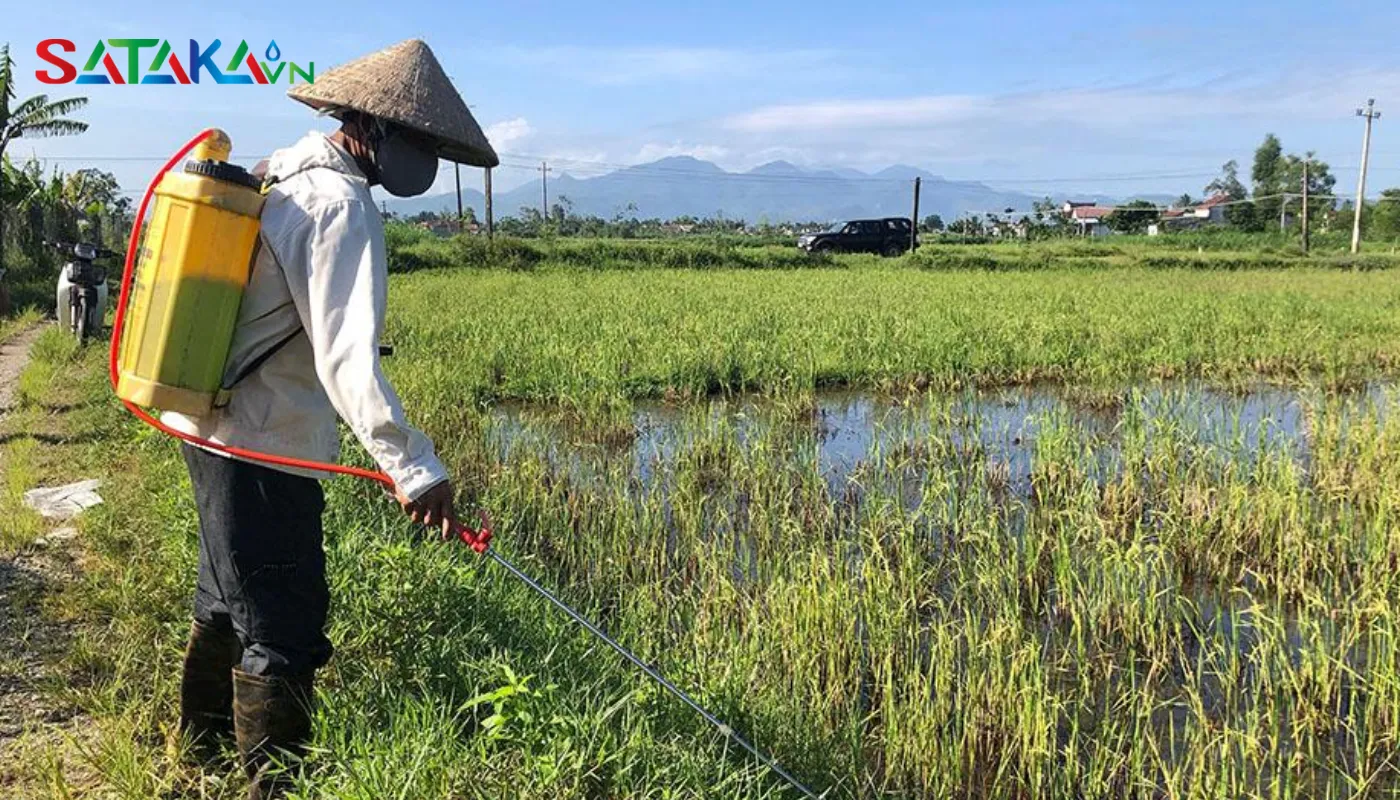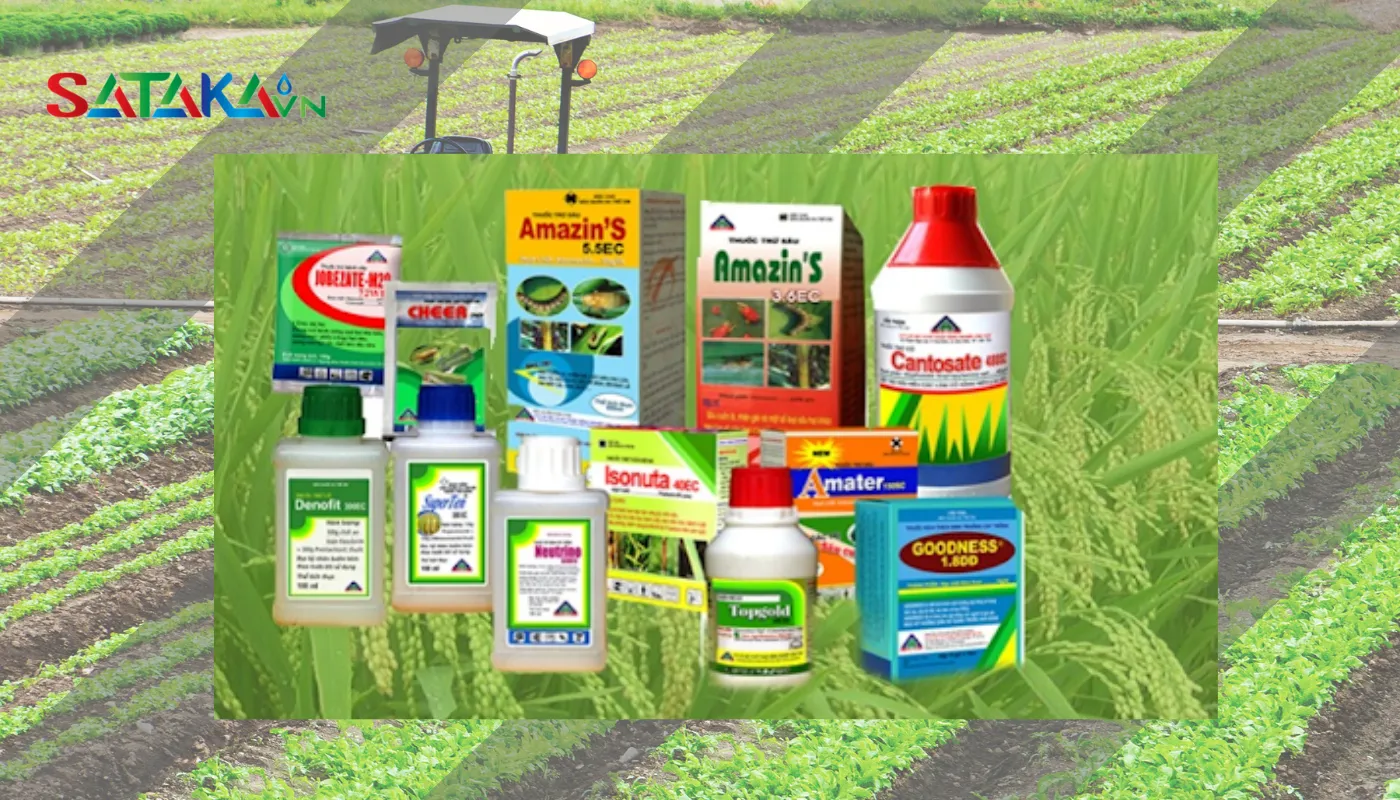Agricultural chemicals are very popular today, let's find out with Sataka what agricultural chemicals are? Its effects on the agricultural industry today.
In the era of industrialization and agricultural modernization, the use of agricultural chemicals has become extremely popular and important. Join Sataka Vietnam to discover what agricultural chemicals are and their effects in today's agricultural industry
Agricultural chemicals, or agrichemicals, refer to chemicals used in agriculture to maximize the recovery and growth potential of livestock and crops. They protect agricultural plants from pests and enhance crop productivity, serving as critical inputs in farming. So, what are the specific uses of agricultural chemicals, and how do they benefit agriculture? Let’s delve into these questions in today’s article.
When used correctly, agricultural chemicals deliver high-quality results and improve productivity significantly. Chemicals such as fertilizers, fungicides, and pesticides eliminate harmful agents affecting crops, ensuring optimal growth and maximum effectiveness. Fertilizers supply essential nutrients to plants, ensuring they thrive and grow as expected. Agricultural chemicals impact crops both externally and internally to achieve the highest efficiency.

However, while agricultural chemicals are utilized to enhance plant vitality and resistance to harmful pests, overuse can lead to ecological imbalances and severe environmental harm. Excessive use also leaves residues that disrupt nutrient balance, reducing crop growth efficiency. Therefore, caution is necessary when using agricultural chemicals to ensure the safety of oneself, loved ones, and the surrounding environment (water, soil, and air).
The use of agricultural chemicals has evolved through a rich and diverse history in agriculture. In ancient Japan, farmers employed simple methods such as loud noises, bells, and drums in fields to repel pests and protect crops. During the Edo period (1603–1868), Japanese farmers used whale oil to spray rice fields, controlling harmful insects—a practice continued into the early Showa era.
Before World War II, natural chemicals like nicotine sulfate from tobacco, copper, and sulfur were used to combat pests and fungi. Although these methods helped control pests, they left the significant challenge of weed control, which often required manual labor.
Post-WWII technological advances led to the development of new agricultural chemicals, enabling farmers to control pests more effectively and boost crop productivity. Herbicides proved particularly efficient, saving farmers time and effort. However, these chemicals posed challenges, including adverse effects on human health and the environment.
Recognizing these issues, the Agricultural Regulation Act was revised in 1971 to protect health and preserve the national environment. Strict regulations mandated product registration, toxicity testing, and reporting to authorities before market release. Highly toxic chemicals were restricted or banned, pushing manufacturers to develop low-toxicity, short-residual products.
Agricultural chemicals can be categorized into six main groups: pesticides, insecticides, herbicides, fungicides, fertilizers, and soil conditioners. Each category plays a vital role in crop protection and growth enhancement.
Pesticides
Definition: Chemicals used to destroy or control pests affecting crops.
Examples: Imidacloprid, organophosphates, carbamates, and pyrethroids.
Insecticides
Definition: Used to eliminate insects.
Examples: Ovicides (kill eggs), larvicides (kill larvae).
Herbicides
Definition: Used to control or destroy weeds.
Examples: Cyhalofop-butyl, Atrazine.

Fungicides
Definition: Used to control fungi and oomycetes.
Examples: Mankocide.
Fertilizers
Definition: Chemical compounds that promote plant growth by supplementing soil nutrients.
Categories: Organic (naturally occurring) and inorganic (synthetically produced).
Examples: Organic fertilizers from livestock manure and inorganic fertilizers from chemical processes.
Soil Conditioners
Definition: Enhance soil conditions, including compost, peat, manure, and leaves.
Benefits: Improve water retention and soil aeration.

If you're looking for reliable and high-quality agricultural chemicals in Vietnam, consider Sataka Vietnam. This trusted supplier specializes in agricultural chemicals, materials, and solutions.
At Sataka Vietnam, you’ll find: